Eri Sato-Shimokawara
Robotic Assistant Agent for Student and Machine Co-Learning on AI-FML Practice with AIoT Application
May 11, 2021



Abstract:In this paper, the Robotic Assistant Agent for student and machine co-learning on AI-FML practice with AIoT application is presented. The structure of AI-FML contains three parts, including fuzzy logic, neural network, and evolutionary computation. Besides, the Robotic Assistant Agent (RAA) can assist students and machines in co-learning English and AI-FML practice based on the robot Kebbi Air and AIoT-FML learning tool. Since Sept. 2019, we have introduced an Intelligent Speaking English Assistant (ISEA) App and AI-FML platform to English and computer science learning classes at two elementary schools in Taiwan. We use the collected English-learning data to train a predictive regression model based on students' monthly examination scores. In Jan. 2021, we further combined the developed AI-FML platform with a novel AIoT-FML learning tool to enhance students' interests in learning English and AI-FML with basic hands-on practice. The proposed RAA is responsible for reasoning students' learning performance and showing the results on the AIoT-FML learning tool after communicating with the AI-FML platform. The experimental results and the collection of students' feedback show that this kind of learning model is popular with elementary-school and high-school students, and the learning performance of elementary-school students is improved.
A Study on AI-FML Robotic Agent for Student Learning Behavior Ontology Construction
Jun 27, 2020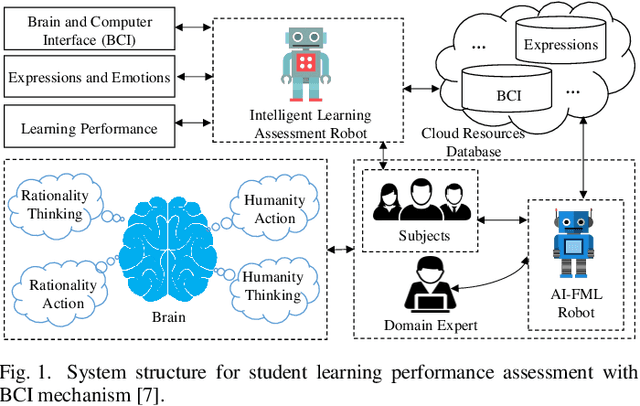
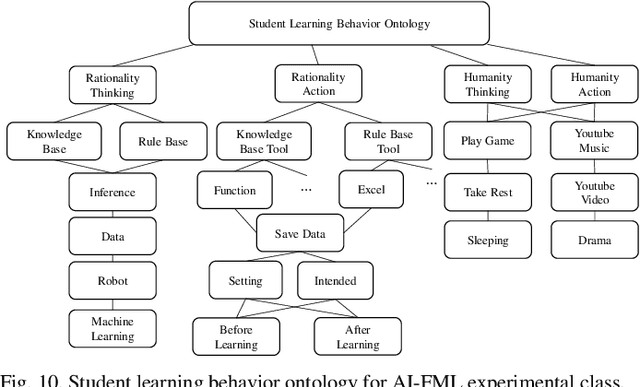
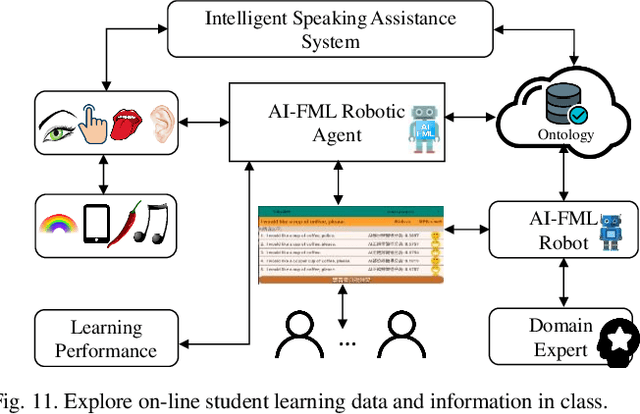
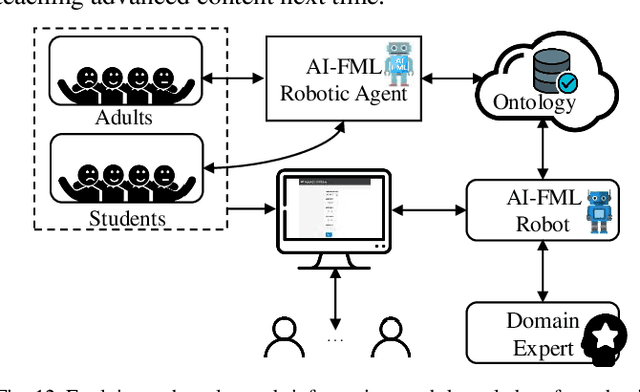
Abstract:In this paper, we propose an AI-FML robotic agent for student learning behavior ontology construction which can be applied in English speaking and listening domain. The AI-FML robotic agent with the ontology contains the perception intelligence, computational intelligence, and cognition intelligence for analyzing student learning behavior. In addition, there are three intelligent agents, including a perception agent, a computational agent, and a cognition agent in the AI-FML robotic agent. We deploy the perception agent and the cognition agent on the robot Kebbi Air. Moreover, the computational agent with the Deep Neural Network (DNN) model is performed in the cloud and can communicate with the perception agent and cognition agent via the Internet. The proposed AI-FML robotic agent is applied in Taiwan and tested in Japan. The experimental results show that the agents can be utilized in the human and machine co-learning model for the future education.
A GFML-based Robot Agent for Human and Machine Cooperative Learning on Game of Go
Jan 22, 2019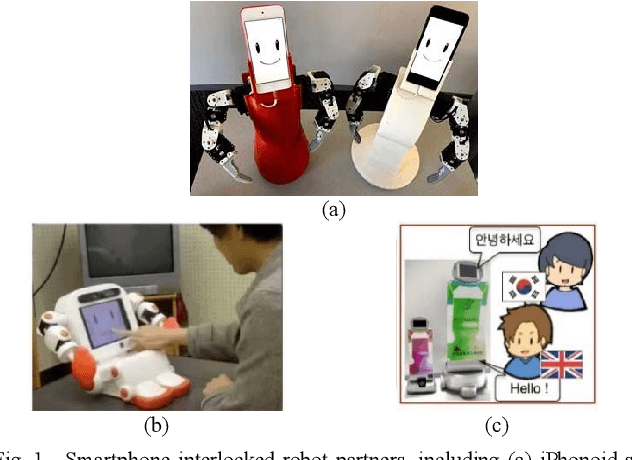
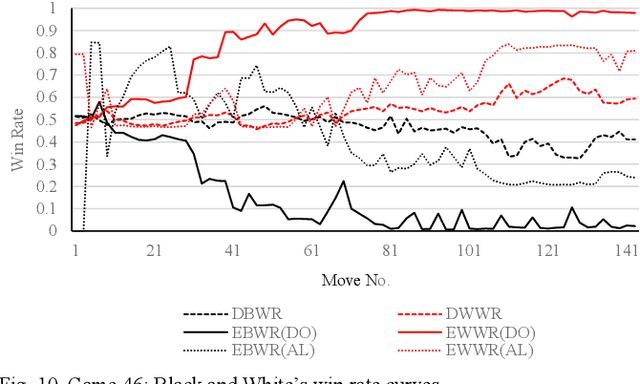
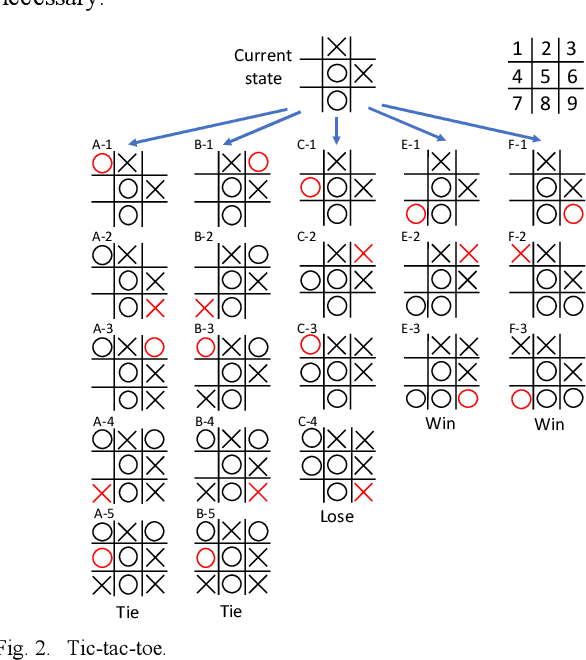
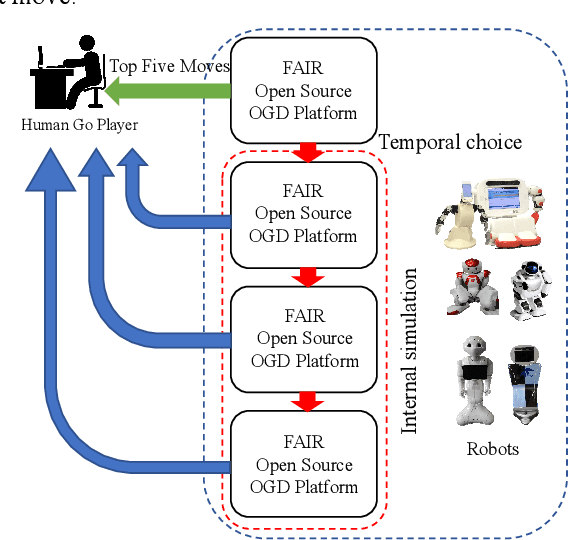
Abstract:This paper applies a genetic algorithm and fuzzy markup language to construct a human and smart machine cooperative learning system on game of Go. The genetic fuzzy markup language (GFML)-based Robot Agent can work on various kinds of robots, including Palro, Pepper, and TMUs robots. We use the parameters of FAIR open source Darkforest and OpenGo AI bots to construct the knowledge base of Open Go Darkforest (OGD) cloud platform for student learning on the Internet. In addition, we adopt the data from AlphaGo Master sixty online games as the training data to construct the knowledge base and rule base of the co-learning system. First, the Darkforest predicts the win rate based on various simulation numbers and matching rates for each game on OGD platform, then the win rate of OpenGo is as the final desired output. The experimental results show that the proposed approach can improve knowledge base and rule base of the prediction ability based on Darkforest and OpenGo AI bot with various simulation numbers.
 Add to Chrome
Add to Chrome Add to Firefox
Add to Firefox Add to Edge
Add to Edge